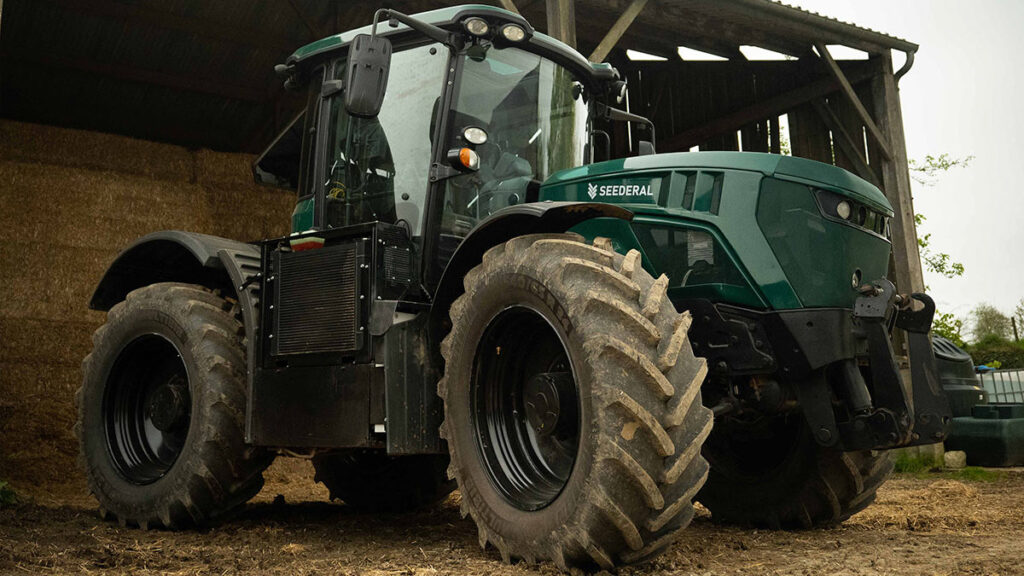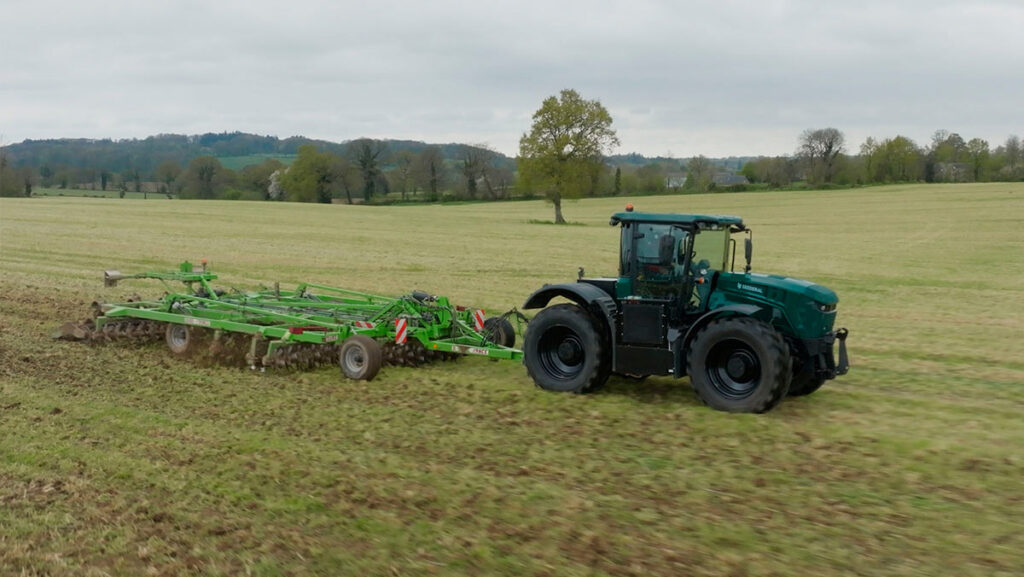Seederal develops prototype 160hp battery-electric Fastrac
 © Seederal
© Seederal An electric tractor project under way in France has secured almost €11m (£9.5m) of second-round funding as a proof-of-concept prototype undergoes further field trials.
The Seederal start-up, based in Brittany, north-west France, has converted a JCB Fastrac to battery-electric power with an output equivalent to 160hp.
This is being used to validate the power pack’s performance, capacity and reliability expectations as the business turns its attention to designing a bespoke tractor with a chassis-battery concept and similar power.
See also: On test: JCB Fastrac 4220 iCON tractor
“We had to rethink the tractor entirely; we don’t just replace a thermal engine with an electric motor,” explains engineer Arthur Rivoal, Seederal co-founder and chief technical officer, when setting out the company’s vision for its eventual tractor design.
The start-up received €1.2m (£1m) to pull together a technical team with experience of agriculture, batteries and the automotive industry, create a power pack and convert the Fastrac for field trials.
The second funding round, comprising a €3.7m (£3.2m) award from the France 2030 post-Covid recovery fund and €10.8m (£9.3m) from commercial investment funds, will enable further recruitment to the technical team, additional work on battery capacity to deliver a full day’s operation on a single charge, and development to achieve a rapid charging goal of 0-100% in two hours.
Funds will also go towards assembling a prototype of the production tractor, which Seederal aims to launch in 2026.

© Seederal
Target market
Whereas most of the handful of electric tractors on sale today are in the compact segment, the start-up is focused on the core 100-200hp category, which is understood to cover more than half the tractors sold in Europe, worth around €9bn (£7.7bn) a year.
This category also represents a large proportion of the total emissions from agricultural machinery, which in France is said to account for 2% of the country’s annual greenhouse gas emissions, and 3% of energy consumption.
Arthur says this is why tractors should be the core target for moves towards carbon-free agriculture.
“The tractor is central because it mechanises all stages of the cultivation cycle: preparation, sowing, protection, fertiliser application, and harvest.”
“Electric tractors can reduce the carbon footprint by 15-20t a unit a year, the equivalent of the annual emissions of 17 cars travelling 12,000km a year, the average for a car in France.”

